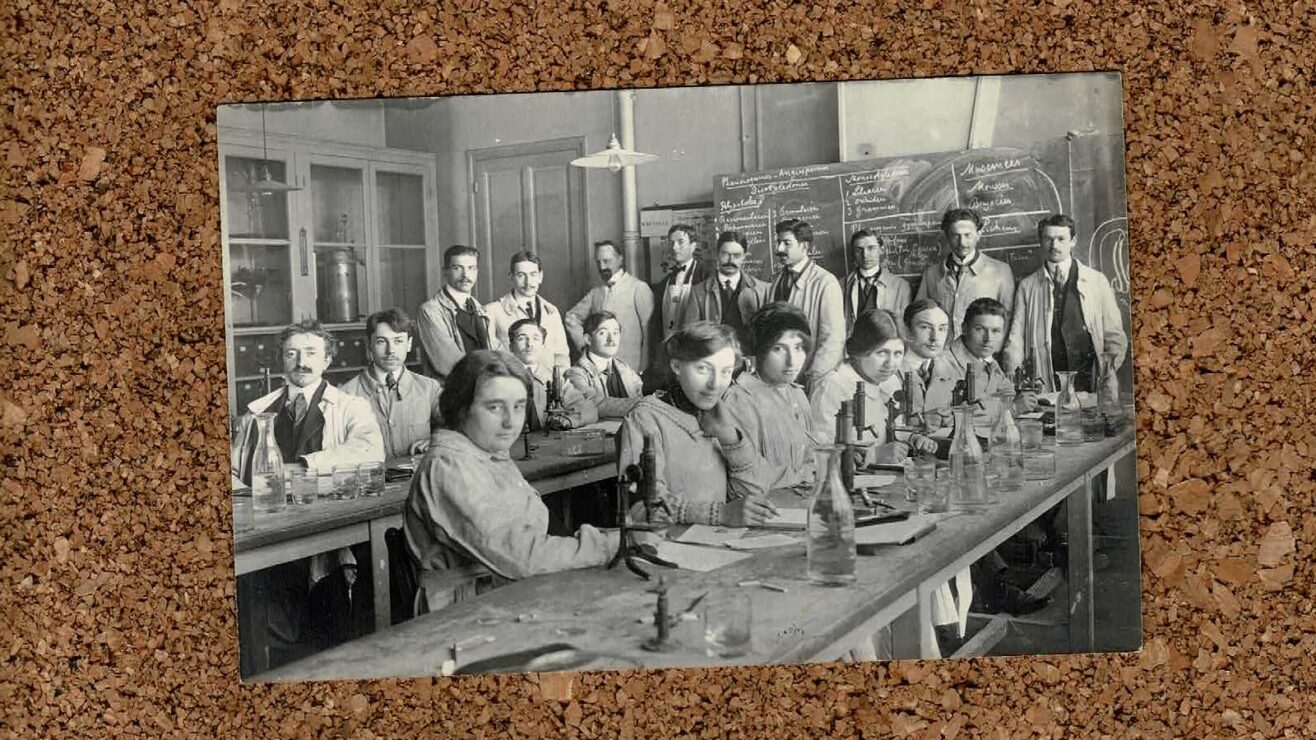If, as I do, you spend a good chunk of the week working with student leaders, you come to really tire of politicians and the media’s use of the term “student politics”.
The insinuation is one of triviality and immaturity – which always feels both “a bit rich coming from them” and one that is profoundly unfair given the quality, contribution and commitment of the people I spend time with. But it’s the demonisation that really gets me.
Give them enough trope
I have been involved in higher education long enough to know all the tropes surrounding students and young people. Sometimes they’re described as lazy. Often they’re marked out as selfish. Frequently they are framed as irresponsible, or as people who don’t know how lucky they are. Either they don’t care, or they don’t care about “us”.
The thing about those tropes is that while they are almost certainly true for some, overall they’re becoming less and less true as higher education expands and diversifies. And they’re certainly not true when it comes to student leaders.
The point is that students live in a world that they view as being profoundly unequal, unfair and harsh. They may be relatively coddled – and we can always find those who’ve had it worse – but they experience much of the inequality, unfairness and nastiness in their own lives. And they want to do something about it.
If anything, they care a bit too much.
I’ve always thought it was particularly impressive that the architect of £9,000k fees in 2010 got away with using the same year to launch a book on intergenerational fairness – because the most profound inequalities that they face are generational.
They know that the game they’ve been told to play – work hard, play less, get into uni, get a career – is rigged. They know that without serious and significant wealth redistribution, they will not be a generation that will do better than the one before it. And they know that no government will dare do it, because governments that try know they will lose and oppositions that try will fail to secure power.
Not like me
The inequalities are not just about wealth, of course. They intersect. The massification and diversification of the sector has been good for “bridging” social capital, because today’s students are slowly getting better at understanding people that are not like them. But that also means that they are starting to see the deep inequalities faced between people who have different characteristics. The point isn’t that those “identity” inequalities are worse than before. The point is that they are clearer, more visible, and students are more conscious of them than ever before.
Generationally, not only do they know that someone else is hoarding the wealth, they also know that that someone probably believes different things about those inequalities. Some overstate the differences in values and beliefs between graduates and non graduates, or between social classes or genders. The most profound differences are about age. There are always exceptions – but look at the numbers. Do we complain about political and belief monocultures in the over 50s? We should.
| Net support amongst age groups for "wokery" | 18-34 | 35-54 | 55+ |
|---|---|---|---|
| Statues of historical figures being taken down | 29% | 3% | -32% |
| Men being allowed to redefine themselves as women and access women-only facilities | 31% | 1% | -32% |
| Breastfeeding being renamed ‘chestfeeding’ | 42% | -3% | -39% |
| Children being allowed to take puberty blockers and have hormone therapy to change gender | 43% | -6% | -37% |
| The idea that Britain is a systemically or institutionally racist country | 21% | -4% | -24% |
| People facing disciplinary action or losing their jobs for writing or liking politically incorrect posts on social media | 7% | -1% | -5% |
| Environmental protest groups causing damage to property & disrupting city centres | 24% | -4% | -29% |
| Negative attitudes towards the Royal Family | 24% | -5% | -28% |
| Shorter sentences for criminals | 27% | -2% | -25% |
All politics is local, and “doing something about it” usually means a preference for doing something about it “locally”. For students, that means dealing with their “handsy” lecturers, not being groped in nightclubs, getting a couple of non-white authors on their reading lists and not having to play “Gay Chicken” on the sports tour bus. It means their spaces, their emails, their essays, their projects, their profile pictures and their pronouns.
I sometimes instinctively recoil at the more parochial acts. Why are student leaders so worked up about their little rooms and services and groups when the “real world” is much worse? But I forget that these things are their homes. We tackle the things we can control. We all had posters on the wall that we both chose because we liked them and because we wanted to impress who popped in. The difference is that we can see everyone’s walls now. Even the walls of Magdalen College’s common room.
Many see and feel the unfairness, and the inequalities, and the nastiness, and feel engulfed and overwhelmed by it all.
Some look for grand narratives and theories that explain it all – that’s sort of the point of academia.
Some want to do something practical – like the students at York who’ve raised an incredible £100k this year for charity.
And others put their hand up, or fill in a form, and pledge to try to change things that they can control for other students – their shops, their meetings, their spaces and their curricula.
Kerosena adrenalina
When they do it, and the press ridicule them and people like Gavin Williamson have a pop and say it’s “absurd” and an example of “cancel culture” – pouring kerosene on the culture war – those of us that work in and around students have choices.
What we say – or don’t say – matters. And again, I’ve been around long enough to know that several takes are available when the press need a quote, or the chair of Council wants a word, or when the MP makes the phone call.
We can say that “cancel culture isn’t an issue”. In some ways that’s objectively true. But there is something going on. And it’s better to accept that than to suggest to the “other side” that there’s simply nothing to see here.
We could say that students are “right”. That’s certainly what I tend to think. But that doesn’t help when the divisions are as profound as in that chart above. Because the subtext is “that means you’re wrong” to everyone over 55. And I’m not sure that’s especially helpful, especially if that part of the electorate controls western democracies now.
We could say “well, they’re not representative” when the data disagrees, or suggest they’ve somehow been indoctrinated when they’ve been working out how the media does that to them since they’ve been toddlers.
We could say “ah but they’re silly and stupid and young and will grow out of it”, but all the young hear when we say that is “they’ll grow out of having values and mature into bigots”. That’s unhelpful too – and may well be untrue.
We could say – as some have tried recently – that we “stand for free speech” and that higher education “will be a place of free debate” and that students “will learn to disagree here” because “higher education is about discomfort”. But this isn’t really about free speech. Students are happy to debate ideas, they just don’t want to debate their own existence.
So what else could we do?
Gone southgate
I write in a week when two strands of the culture wars have continued to play out in real time and dominate both new and old media. One concerns higher education, and students, and the Queen, and statues of slave owners. And another concerns sport, and “offence archeology”, and “taking the knee”, and Black Lives Matter. Both concern racism, and people trying to make the world more equal.
What’s impressive and unusual about the Gareth Southgate intervention is as much about what he doesn’t do in his “Dear England” blog as it is about what he does. He doesn’t say “what a waste of time”, or “what an empty gesture”. He doesn’t argue that there’s no issue in football, or that “politics” has no place in it. He doesn’t just hope it will all blow over, he doesn’t just assert to the old that his players are “right”, and nor does he raise an eyebrow and pat on the head and break the fourth wall and signal that they’ll grow out of it.
He calms it down. He makes you think. He listens, explains, contextualises and attempts to unify. He douses the fire rather than fanning the flames.
Now I know that Southgate’s intervention here has much to do with, and draws heavily upon, the highly sophisticated, compelling and authentic leadership of his Black players – most notably Marcus Rashford. But the point is that the manager here – the middle aged white man who’s in charge of the England game and the England players – had choices.
And all of us that work in and around students and their leaders have similar choices. Some of us have highly paid responsibilities, too.
We too could demonstrate we’re listening, show some leadership over understanding where they’re coming from and why (signalling our empathy), and think about how to bring the “sides” together.
We could remind everyone that democracy and “free speech” is valuable partly because it offers an understanding of others, not just an opportunity for one’s own view to be heard.
We could role model active understanding – and responding rather than just reacting. And our efforts at civic engagement could be focussed on bringing generations together rather than just doing STEM experiments in the shopping centre.
We could be proud of them. Not because we agree with everything they do or the way they do it, but because they’re prepared to do something.
We could remind people – until we’re as blue in the face as they are red in it – that these students’ greatest crime as they get ripped apart on social and doxxed by the Daily Mail is that they’re trying to make the world a bit fairer, a bit more equal and a bit less harsh.
And as we enter the final month of their year in office, we could be particularly proud of those who stood for office to serve other students this year, and we could signal so. Virtuously.
I had nothing like their bravery or tenacity when I was one of them 25 years ago. The rewards are not handsome, the culture is unforgiving, the cultures they are expected to operate in harbour and reproduce the inequalities they rail against, their experience of acting as a lightning rod for both direct abuse and personal disclosure (sometimes from the same people) is deeply burdening – and doing all of that during a pandemic has just been no fun at all.
Yet they have done it, really very effectively, and higher education has been better this year because of it.
And anyway. What could be more “trivial” and “immature” (and utterly counterproductive) than turning to the crowd, pointing at them, and calling them “absurd”?














Here, here.